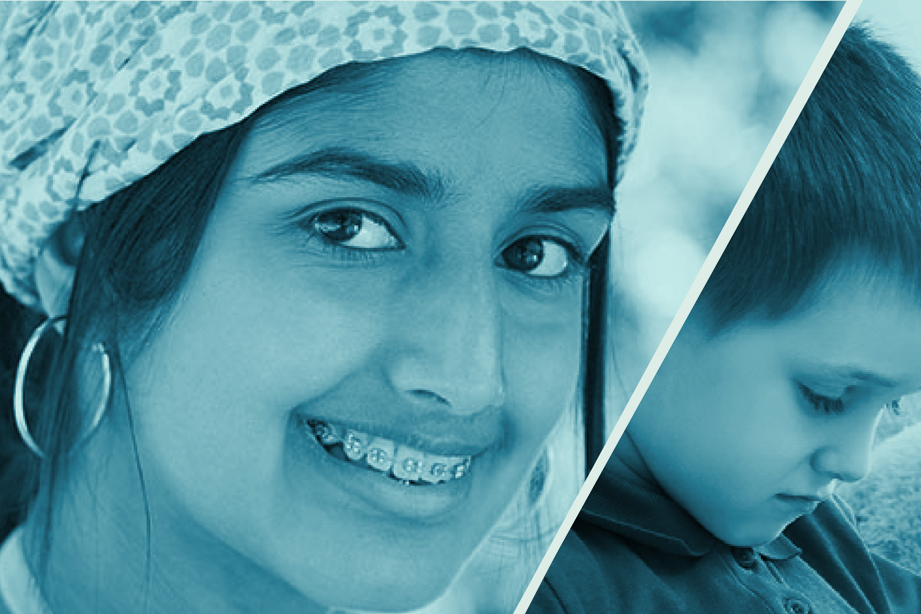Violence in the Home Not Just a Spousal Issue
April 30, 2021 | News

Ottawa, ON – It has become apparent that spousal abuse/violence in the home has increased during the current pandemic. What is not generally known is that there has also been an increased incidence of challenging behaviours, including aggression towards other family members in families that include those with neurodevelopmental disabilities (NDD).
These challenging behaviours have always been present, but family members have been reluctant to disclose due to stigma and shame. During the pandemic restrictions, ABLE2, together with Kids Brain Health Network and Mitacs—a not-for-profit organization that fosters growth and innovation in Canada, conducted a study to better understand families’ social support needs with children with NDD and how to adapt established support services to these emerging needs.
NDD includes brain-based disabilities such as Autism Spectrum Disorder, Cerebral Palsy, Fetal Alcohol Spectrum Disorder and Intellectual Disabilities. For this study, all the families who volunteered to participate are raising one or more children with Fetal Alcohol Spectrum Disorder (FASD).
The most significant finding for children was an increased incidence of challenging behaviours, including aggression towards other family members. Previous mental health issues were found to have been exacerbated in these children due to the disruption of services and regular routines and structures (such as school) and increased social isolation. Caregivers reported a regression in children related to anxiety about their situation, and some previous trauma behaviours resurfaced.
Challenging and dangerous behaviours exhibited by children severely impacted caregivers’ mental health, including increased feelings of anxiety, depression, and social isolation, with some caregivers reporting being diagnosed with Post-Traumatic Stress Disorder during the pandemic as a result of caring for their child. Also, placement instability, for those with adopted children, was identified as a significant concern by several families.
FASD is a diagnostic term used to describe impacts on the brain and body of individuals prenatally exposed to alcohol. FASD is a lifelong disability. Individuals with FASD will experience some degree of challenges in their daily living and need support with motor skills, physical health, learning, memory, attention, communication, emotional regulation, and social skills to reach their full potential. Each individual with FASD is unique and has areas of both strengths and challenges (CanFASD, 2019). In Ontario, it is estimated that 4% of the population are living with FASD.
ABLE2 is calling on all levels of government for three critical systemic changes: provide resources for FASD-informed respite options that are accessible and safe during the COVID-19 pandemic, resume mobile crisis unit as an essential service, and enhanced support to address the mental health needs of children with FASD and their caregivers.
Media Contact: Heather Lacey, Executive Director, ABLE2, 613-761-9522 ext. 225, hlacey@able2.org
Maude Champagne, 819-335-0602, 20mc17@queensu.ca
About ABLE2:
ABLE2 is a small but powerful charity with a big purpose. We are the only organization in Ottawa that supports people of all ages across the disability spectrum and their families to live life as valued members of our city.
About Kids Brain Health Network:
Since 2010, the Kids Brain Health Network (KBHN) has been supported by the National Networks of Centres of Excellence (NCE) Program. The NCE is a Canadian government initiative, which funds partnerships between universities, industry, government, and not-for-profit organizations to create large-scale research networks with the overarching goal of delivering socio-economic benefit to Canada.
As a research network, KBHN engages and partners with community groups, not-for-profit organizations, industry, parents, clinicians, health professionals, provincial and federal governments, and everyone who can play a role in advancing knowledge to improve outcomes for children with neurodevelopmental disabilities and their families .
Contact: Communications Coordinator, KBHN, 778-782-7281, communications@kidsbrainhealth.ca
About Mitacs:
- Mitacs is a not-for-profit organization that fosters growth and innovation in Canada by solving business challenges with research solutions from academic institutions.
- Mitacs is funded by the Government of Canada along with the Government of Alberta, the Government of British Columbia, Research Manitoba, the Government of New Brunswick, the Government of Newfoundland and Labrador, the Government of Nova Scotia, the Government of Ontario, Innovation PEI, the Government of Quebec, the Government of Saskatchewan, and the Government of Yukon.
Contact: accelerate@mitacs.ca